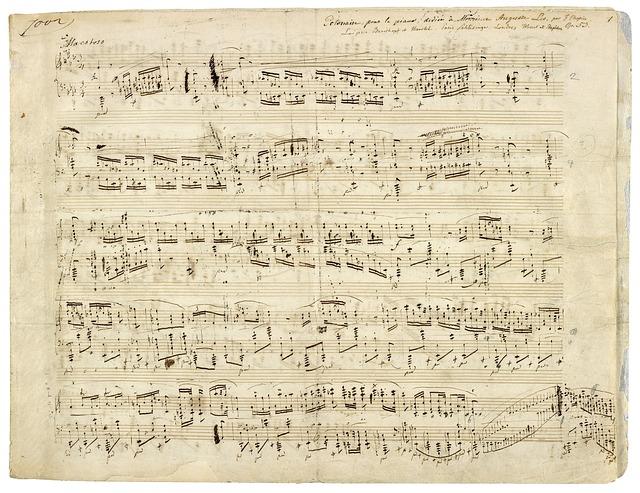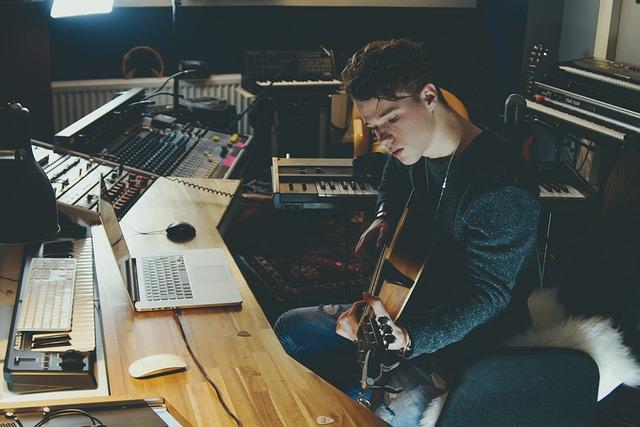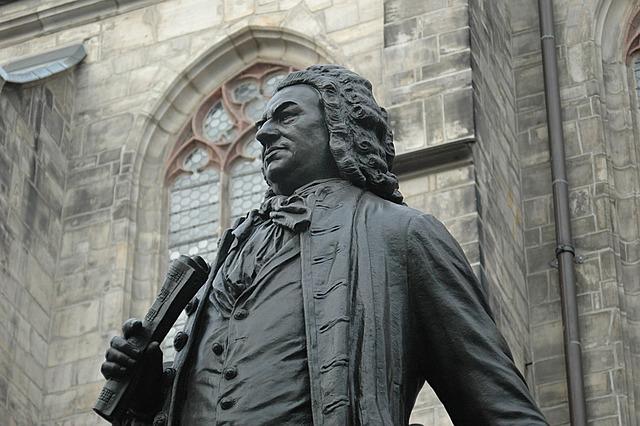In the ever-evolving landscape of cinema, the role of music remains a steadfast pillar, elevating narratives and imbuing scenes with emotional depth. This year, one composer has risen to the forefront, crafting a score that has not only captured the hearts of audiences but also redefined the boundaries of auditory storytelling. In “,” we delve into the creative genius behind this remarkable work. With a keen analytical eye, we explore the intricate processes, inspirations, and innovations that culminated in a soundtrack hailed as a masterpiece. Join us as we unravel the artistry that transforms film into an unforgettable sensory experience, guided by the composer whose music has become the year’s defining cinematic voice.
Crafting Emotion Through Melody
In our interview, the composer delved into the delicate art of evoking emotion through melody. “Every note is a brushstroke,” they explained, emphasizing the importance of crafting themes that resonate on a visceral level. They shared how the main motif in their award-winning score was born from a single, haunting melody line, which they then expanded into a full orchestral tapestry.
- Intuitive Process: The composer trusts their instincts, allowing the music to evolve organically.
- Character Reflection: Each character’s journey is mirrored in their unique musical theme.
- Emotional Layers: By layering instruments, the score builds complexity and depth.
The result is a soundtrack that doesn’t just accompany the visuals but elevates them, drawing audiences into the narrative’s emotional core. “It’s about finding the heart of the story and letting it sing,” they concluded, offering a glimpse into their melodic magic.

Unveiling the Creative Process
The intricate tapestry of a film’s soundtrack is woven through a dynamic blend of intuition and meticulous planning. Our composer delves into the heart of their creative journey, shedding light on the delicate balance between spontaneity and structure. The process begins with a deep dive into the film’s narrative, where emotions are mapped out and initial themes are sketched. From there, the magic unfolds through a series of key steps:
- Exploration: Immersing in diverse musical styles to spark inspiration.
- Collaboration: Engaging with directors and editors to align visions.
- Experimentation: Crafting unique sounds by blending traditional instruments with electronic elements.
- Refinement: Iterating themes and motifs to perfectly sync with the film’s emotional beats.
By embracing both the chaos of creativity and the precision of composition, the composer crafts a score that not only supports but elevates the storytelling, creating a symphonic journey that resonates long after the credits roll.

The Influence of Cultural Elements
The score’s profound impact can be traced back to the intricate weaving of cultural elements that the composer skillfully employed. Drawing inspiration from diverse musical traditions, the soundtrack resonates with authenticity and emotional depth. This year’s standout composition showcases how cultural motifs are not merely decorative but foundational, providing a rich tapestry that enhances narrative storytelling.
- Traditional Instruments: The use of native instruments offers a genuine connection to the film’s setting, creating an immersive auditory experience.
- Melodic Structures: By incorporating folk melodies, the score taps into collective cultural memories, evoking a sense of familiarity and nostalgia.
- Rhythmic Patterns: The rhythmic elements draw from indigenous dance forms, infusing scenes with energy and authenticity.
These elements are meticulously integrated, reflecting the composer’s deep understanding and respect for the cultural sources. The result is a score that not only supports the film’s narrative but also stands alone as a testament to the power of cultural influence in music.

Essential Tips for Aspiring Composers
In our conversation with the composer, they shared invaluable insights for those looking to carve their path in the world of music composition. Here are some key takeaways:
- Find Your Unique Voice: Embrace your individuality and let your personal style shine through. Experiment with different genres and techniques until you discover a sound that feels authentic to you.
- Understand Storytelling: Music is a narrative tool. Dive deep into the scripts or scenes you’re scoring to ensure your compositions enhance the emotional journey.
- Network and Collaborate: Build relationships with directors, producers, and fellow musicians. Collaboration often opens doors to unexpected opportunities and creative growth.
- Stay Curious and Keep Learning: The music landscape is ever-evolving. Keep up with the latest technologies and trends, and never stop honing your craft.
Remember, the journey of a composer is as much about persistence as it is about talent. Embrace challenges, and let them fuel your creativity.

